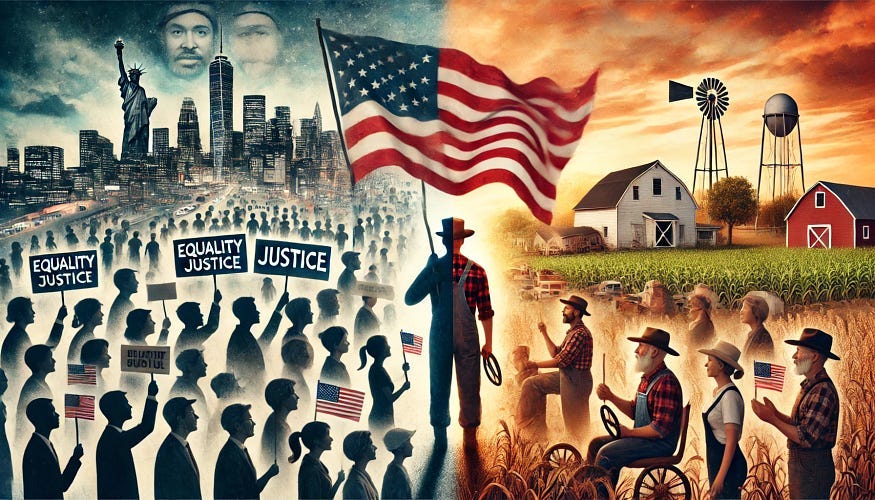The Battle Over American Values: A Clash of Perspectives
In a deeply polarized nation, the question of which side upholds American values best reveals more than just political divisions — it uncovers different visions for the future of the country.

The perception that some MAGA supporters might hate what America stands for often stems from differing interpretations of American values, principles, and history. While this viewpoint is common among critics, it is essential to recognize that people across the political spectrum may believe they are fighting for what they consider the true spirit of America, even if their views and methods are vastly different.
Differing Visions of “America”
For many Americans, the country represents ideals like freedom, democracy, equality, and justice for all. These values are deeply embedded in the nation’s founding documents and its ongoing narrative as a “land of opportunity.” Critics of the MAGA movement argue that certain actions or rhetoric from within this group contradict these core values. For example, they may point to behaviors or policies they perceive as undermining democratic processes, restricting certain rights, or embracing exclusionary or divisive ideologies. These critics argue that such actions oppose what America has traditionally stood for, especially in terms of inclusivity and democratic governance.
On the other hand, many MAGA supporters feel they are defending America’s founding principles — like limited government, free enterprise, or national sovereignty. They may see their actions as a way to restore what they believe has been lost or compromised by policies they view as too progressive or globalist. For them, upholding American values means returning to a time when the government’s role was more constrained, and individual freedoms were more prominently emphasized. To these supporters, their stance is not about exclusion or division but about protecting the nation’s identity, culture, and economic independence.
The Roots of the Conflict
This conflict over what America represents is not new; it has been a recurring theme throughout the country’s history. Whether in debates over the Constitution, the Civil War, the civil rights movement, or contemporary political clashes, Americans have often been divided over the best way to live up to their founding ideals.
For some, American values are synonymous with progress: extending civil rights, broadening access to education, healthcare, and opportunities, and fostering a diverse, inclusive society. For others, these values are grounded in preserving traditional structures, promoting individual responsibility, and ensuring national security and sovereignty.
The current polarization reflects these deep-seated differences in how American values are interpreted. One side may view MAGA supporters as resisting necessary social progress and clinging to outdated or even oppressive norms. Meanwhile, MAGA supporters may see their critics as eroding the country’s foundational principles and pushing a vision that undermines the nation’s character and sovereignty.
Who Holds Up American Values Best?
Determining which side “holds up American values best” is inherently subjective and depends on one’s definition of those values. If one views American values through the lens of equality, social justice, and collective welfare, then the progressive camp may appear to be the rightful heirs to the country’s founding principles. They advocate for expanding civil rights, protecting individual freedoms related to personal choices, and ensuring a social safety net that provides for the collective good.
Conversely, if American values are seen primarily through the lens of individual liberty, limited government, and economic freedom, then the conservative or MAGA perspective may seem more aligned with the nation’s original intent. They emphasize personal responsibility, reduced government intervention, and a focus on traditional values and national sovereignty as essential to preserving the American way of life.
A Path to Reconciliation
Ultimately, the clash arises from different interpretations of what it means to be American, with both sides believing they are upholding the nation’s core values. This divergence can make it difficult to find common ground, but it also highlights the dynamic and evolving nature of American democracy.
Engaging in open, fact-based conversations about these values and how to best uphold them is crucial to bridging these divides. Both sides must be willing to listen, understand the other’s perspective, and recognize that disagreement does not necessarily mean hatred for the country.
The challenge lies in acknowledging that multiple visions of America exist and that the country’s strength often comes from its ability to reconcile these differing perspectives. By fostering respectful dialogue and focusing on shared goals, there is potential for finding a common path forward — one that honors the diverse interpretations of what it means to truly uphold American values.

